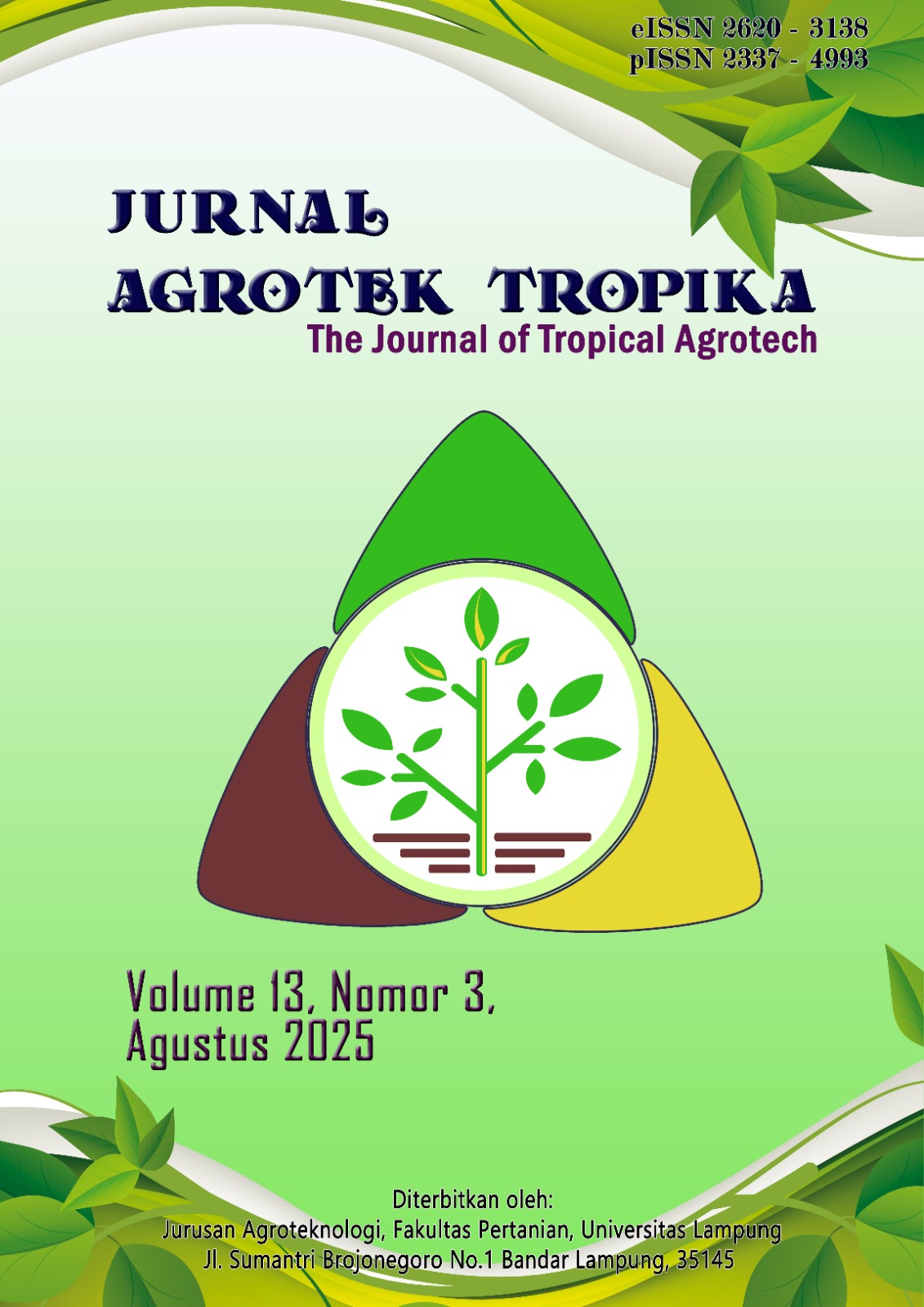RESPONS PERTUMBUHAN AKSESI KACANG KORO YANG BERASAL DARI TIGA SPECIES Canavalia spp. PADA DUA KONDISI LAHAN YANG TERPAPAR SALINITAS
Keywords:
Canavalia cathartica, Canavalia gladiata, Canavalia maritima, protein source, tolerance indicesAbstract
The koro beans from the Canavalia genus serve as a crucial alternative protein source for ensuring national food security. Cultivation can be targeted toward marginal lands, which are abundant in Indonesia.This research aims to evaluate the growth response of different Canavalia spp. accessions from three species under varying salinity conditions. Conducted between September 2023 and March 2024 at Pantai Pasir Putih, Bungo Pasang in Padang City, the study involved planting five accessions of Canavalia spp., two from Canavalia gladiata, two from C. maritima, and one from C. cathartica on fields with low salinity (1.2 dS/m) and moderate salinity (3.8 dS/m). The experimental setup was a Randomized Complete Block Design with two replications per treatment, totalling 20 experimental units. Data were analyzed using combined analysis of variance (combined ANOVA), followed by Duncan's test at a 5% significance level. Correlation analysis determined the relationship between salinity levels and plant growth variables. The findings revealed that the growth of accessions decreased under moderate salinity, except for the Cm.Halmahera and Cm.Bengkulu accessions, which exhibited improved growth. Significant interactions between accessions and salinity levels were observed for stem length, branch number, and stem diameter, particularly 24 weeks after sowing, indicating an optimal period for selecting salinity-tolerant accessions. A strong negative correlation between salinity levels and plant growth was found, indicating that increased salinity suppresses plant growth. Based on salinity tolerance indices, Canavalia maritima accessions Cm.Halmahera and Cm.Bengkulu showed greater adaptability to saline conditions compared to the other accessions.
Downloads
Published
How to Cite
Issue
Section
License
Copyright (c) 2025 Ali Rahmat, PK Dewi Hayati, Indra Dwipa

This work is licensed under a Creative Commons Attribution 4.0 International License.
Jurnal Agrotek Tropika (JAT) is licensed under a Creative Commons Attribution 4.0 International License.
The copyright holder is the author. Authors publishing under any license allowed by the journal retain the copyright and full publishing rights without restrictions.
The Creative Commons Attribution 4.0 International (CC BY 4.0) license allows users to copy, distribute, and adapt the work, even for commercial purposes, as long as proper attribution is given to the original creator. This is a highly flexible license that encourages widespread dissemination and use of creative works, supporting innovation and collaboration across various fields.











